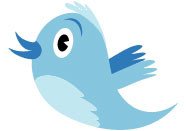 Facebook’s IPO on 18 May 2012 was hyped as the biggest ever. It was also the most expensive. A combination of factors from the Nasdaq’s inability to cope with the volume of transactions to violations of internal policies cost the market $10 million in fines. The state of Massachusetts fined both lead underwriter Morgan Stanley $5 million for unethical conduct over withholding information from potential investors. Similarly, Citigroup was stung for $2 million for sharing research with journalists before the closure of the 40-day post-IPO window (two analysts were later fired).
Facebook’s IPO on 18 May 2012 was hyped as the biggest ever. It was also the most expensive. A combination of factors from the Nasdaq’s inability to cope with the volume of transactions to violations of internal policies cost the market $10 million in fines. The state of Massachusetts fined both lead underwriter Morgan Stanley $5 million for unethical conduct over withholding information from potential investors. Similarly, Citigroup was stung for $2 million for sharing research with journalists before the closure of the 40-day post-IPO window (two analysts were later fired).
The social network’s share price then tanked from $38 to below $20 before slowly recovering to $48 at time of writing. Investors in for the long haul will feel they made the right decision but it wasn’t pretty.
The worst thing about Facebook’s IPO experience was that it failed in one of its main, if unintended, purposes: to put a dollar value on social media. News Corp and AOL both tried and failed to do so with their acquisitions of MySpace and Bebo, only to exit the market with a tiny percentage of their investment intact. Facebook played by the rules but got shafted by the market and banks. Now anyone buying shares in Facebook is trusting the company – not its product: a vast global user base.
Now we get to go through the whole thing all over again on Wednesday with Twitter going public. This time around the goals are more modest: a proposed 70 million shares priced at between $17 and $20, leading to a total valuation of $13 billion (compared with Facebook’s 421 million shares at $38 each and a $96 billion valuation).
Twitter’s US population is much smaller than Facebook’s (16% versus 50% of the population) but it has different habits. According to research from Pew a greater proportion of Twitter users get their news from the network than Facebook users, are mostly in the 30-49 age bracket, evenly split by gender and more likely to have a college education. In commercial terms this is a valuable, discerning market with real buying power. Mind you, there is plenty to do on Twitter besides read the news but Pew’s work provides a valuable insight into what people actually do on Twitter and thus an insight into the comparative value of social networks.
In terms of profitablility there are only two networks worth comparing to Twitter. LinkedIn remains a steady, conservative option. Facebook is too big to fail thanks to its international user base. Low-maintenance networks appealing to small groups with low disposable income like Instagram (now owned by Facebook) and Tumblr (bought out by Yahoo) made for savvy acquisitions but are not likely to be big earners so much as drivers to their owners’ core business. You can expect SnapChat to be snapped up by someone soon.
In a sense, but the social media landscape is beginning to resemble the property market – full of areas where wealth is defined by those of the residents and their feature set. Will the market be happy to buy up some space in Twitter’s lot or will it be a case of ‘there goes the neighbourhood’ as the suits move in and the kids move out? If everyone behaves themselves it will be a hell of a welcoming party.







Subscribers 0
Fans 0
Followers 0
Followers